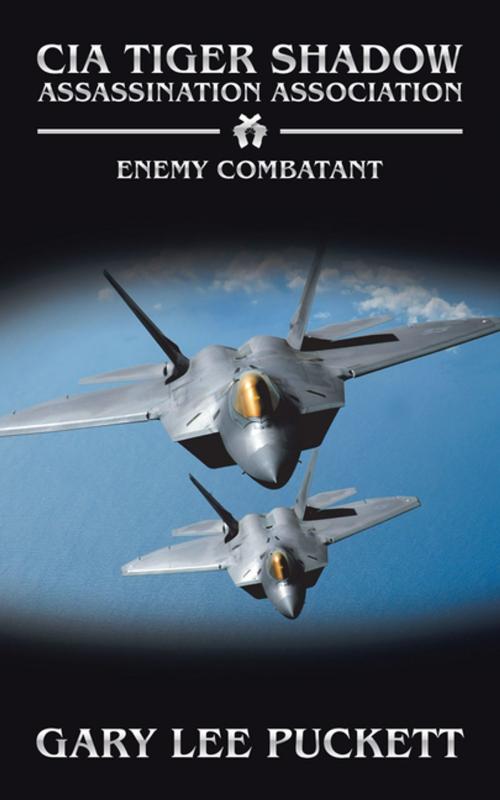| Author: | Gary Lee Puckett | ISBN: | 9781546253037 |
| Publisher: | AuthorHouse | Publication: | August 7, 2018 |
| Imprint: | AuthorHouse | Language: | English |
| Author: | Gary Lee Puckett |
| ISBN: | 9781546253037 |
| Publisher: | AuthorHouse |
| Publication: | August 7, 2018 |
| Imprint: | AuthorHouse |
| Language: | English |
Part of the solution that was agreed to for air defense policies from the United States Navy was tactical air defense in the form of air combat fundamentals. Basic fighter maneuvers are a complex division that assembles numerous positional advantages. Aerodynamic flight operations take into consideration the geometry of pursuit and physics that manage a ratio between numerous areas that require specific energy calculations. The fundamentals of flight possibilities are proportionate to flight maneuvers. Basic aircraft assessments depend on a variety of attack positions that reveal numerous areas of internal national defense policies. If they are expected to be successful, aerodynamic energy and weight calculations depend on numerous considerations. Better angular positions also determine if effective measures can get a lock on the enemys defense. Opposition and requirements have to be determined if evasive estimates can be determined. All of these components usually determine numerous defensive positions of United States Naval pilots. Their maneuvers are carefully calculated and determine enemy attack positions that are offensive and successful at numerous radar locks. To be carefully positioned in range of the enemy requires power and evasive maneuvers. Angular positions relate to air-to-air weapon acquisitions and are carefully conducted to gain offensive positions. Once the determination is made that the enemy is impossible to track, pilots from the ceiling are called in to ambush the enemy and it is a tandem operation. Flushing him into a position that can be exploited by multiple other pilots is the objective of the United States military flight operations. Awareness of his acquisition strengths can reduce his tracking systems if proper weapons of mass destruction possibilities are to be considered. It is the intentions of the United States Navy to engage in numerous different angles that reveal a very complicated attack posture. To facilitate the escape of the enemy is also their area of expertise. Disengagement procedures do not occur until after the treaties have been established. The best tactical defense postures strategically position the United States Naval pilots. It is their duty to defend the air space and international waters of the United States. They are governed by the United Nations and their policies. They can assemble the best tactical defense postures in the world, and there usually is a multinational defense response when the intrusion alarm is sounded.
Part of the solution that was agreed to for air defense policies from the United States Navy was tactical air defense in the form of air combat fundamentals. Basic fighter maneuvers are a complex division that assembles numerous positional advantages. Aerodynamic flight operations take into consideration the geometry of pursuit and physics that manage a ratio between numerous areas that require specific energy calculations. The fundamentals of flight possibilities are proportionate to flight maneuvers. Basic aircraft assessments depend on a variety of attack positions that reveal numerous areas of internal national defense policies. If they are expected to be successful, aerodynamic energy and weight calculations depend on numerous considerations. Better angular positions also determine if effective measures can get a lock on the enemys defense. Opposition and requirements have to be determined if evasive estimates can be determined. All of these components usually determine numerous defensive positions of United States Naval pilots. Their maneuvers are carefully calculated and determine enemy attack positions that are offensive and successful at numerous radar locks. To be carefully positioned in range of the enemy requires power and evasive maneuvers. Angular positions relate to air-to-air weapon acquisitions and are carefully conducted to gain offensive positions. Once the determination is made that the enemy is impossible to track, pilots from the ceiling are called in to ambush the enemy and it is a tandem operation. Flushing him into a position that can be exploited by multiple other pilots is the objective of the United States military flight operations. Awareness of his acquisition strengths can reduce his tracking systems if proper weapons of mass destruction possibilities are to be considered. It is the intentions of the United States Navy to engage in numerous different angles that reveal a very complicated attack posture. To facilitate the escape of the enemy is also their area of expertise. Disengagement procedures do not occur until after the treaties have been established. The best tactical defense postures strategically position the United States Naval pilots. It is their duty to defend the air space and international waters of the United States. They are governed by the United Nations and their policies. They can assemble the best tactical defense postures in the world, and there usually is a multinational defense response when the intrusion alarm is sounded.















